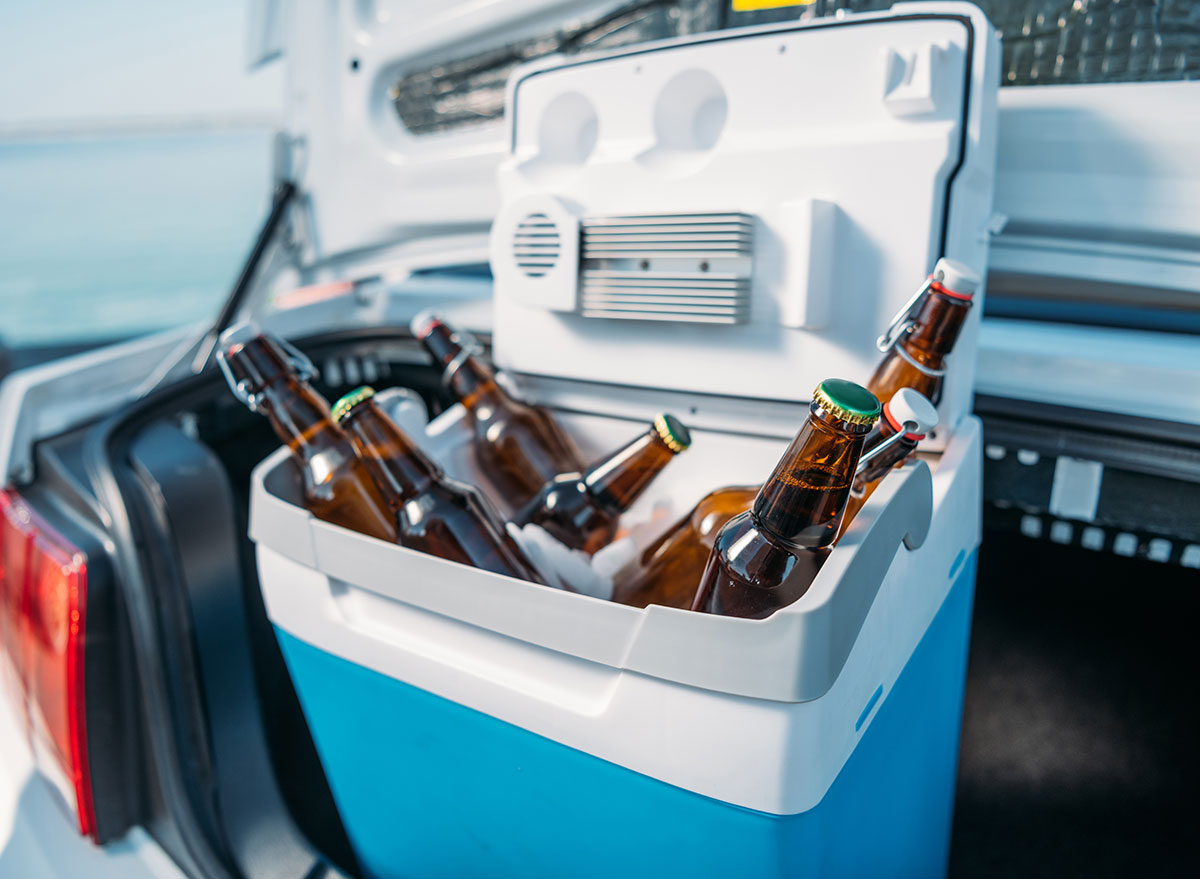The #1 Best Beer to Drink, According to Experts

It could be argued that there's never been a better time to celebrate. The protective restrictions put in place during the pandemic are beginning to lift just as the weather warms up. People are returning to work, school, each other. And though there are many ways to commemorate the start of a new, brighter era, one of the most popular and simple methods is undoubtedly to crack a few cold ones.
If the bad rap that beer traditionally gets in health-conscious circles is turning you off and keeping you from cheering along with long-lost friends, fret not. We spoke to Lisa Richards, nutritionist and author of The Candida Diet, as well as Trista Best, MPH, RD, LD from Balance One Supplements, and got a few key tips about the healthiest ways to indulge—and even asked them what would be considered the best beer to drink. Here's what they said, and for even more healthy drinking tips, be sure to read up on our list of the 108 Most Popular Sodas Ranked by How Toxic They Are.
Just how unhealthy is beer?
Popular knowledge says that beer causes weight gain, and it turns out, popular knowledge isn't wrong. Richards demystified that truth for us a bit, though.
"Alcohol is considered a macronutrient, like protein, fat, and carbohydrates, because it is technically a source of calories," she began. "While protein and carbohydrates provide 4 calories per gram and fat provides 9, alcohol gives the body 7 calories per gram."
She went on to explain that, calories aside, the real issue with alcohol lies elsewhere.
"Alcohol typically leads to weight gain due to how it is metabolized," Richards said. "The body metabolizes alcohol first for energy, leading to calories from other sources being stored as fat. This weight gain is generally due to the poor diet choices that are made while also drinking alcohol."
Besides weight gain, what else should people look out for? According to the experts, gluten and other allergens (like wheat) are common in beer and can cause issues when it comes to gut health.
"Beer is commonly made with a variety of glutinous grains," says Richards. "This can be an issue for anyone prone to inflammation or with a gluten sensitivity or allergy."
So what type of beer is the best?
Dietitian Trista Best explained that in general, the lighter the beer, the better.
"Opting for beers that are light in both color and calories can help to ensure you are drinking a more pure form of the beverage," says Best. "Many beer manufacturers have also begun accommodating consumers with specific needs by crafting their beverages without allergens."
Richards got even more specific, adding that in general the healthiest beers—those made without gluten—are made with either rice, millet, sorghum, or corn instead. Take, for example, Glutenberg Blonde Ale. It's made with corn, millet, and quinoa, among other things, and is a lighter brew.
And then there's also Omission Brewing Co.'s Ultimate Light Golden Ale, which is a reduced-gluten beer that is even lighter, ringing in at just 99 calories.
"These options may come at a slightly higher price tag but are worth it" Best noted.
Now that you're aware of the best beer to drink, here's The Worst Beer to Drink This Summer, According to an Expert.








